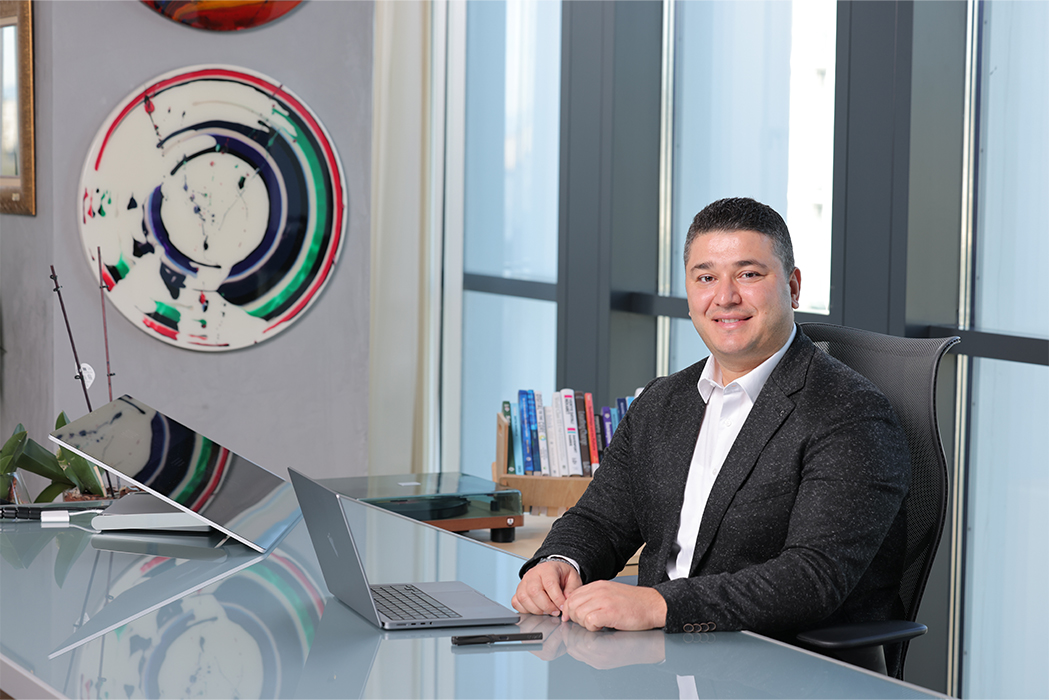
Questions:
How did you decide to enter the fintech sector? What is your role and responsibility within your company?
Working in the field of financial technologies has always excited me since the day I entered this field. Using your technological knowledge in developments that continuously push you forward, never stopping learning, creating solutions that directly impact real life, even using the products you create, and overcoming the challenges of providing uninterrupted and time-independent services to customers are the fundamental elements that motivate me in this field.
My entry into the financial technologies sector began when I started working as the first female employee in the IT department at Kuveyt Türk. At that time, Kuveyt Türk had developed a significant portion of its core banking platform in-house. I began my career as a software engineer in the IT department at Kuveyt Türk and continued to progress, taking on roles such as team manager and various directorships. After Kuveyt Türk began using BOA, a modern core banking platform, the company founded Architecht in 2015 with the vision of transforming the future through financial technologies. Today, Architecht develops end-to-end banking technology for 11 banks, partners with international projects through global collaborations, and offers fast solutions to sector needs with product investments like PowerFactor, AirAPI, and BOACard. In 2022, after Kuveyt Türk consolidated all its software activities under Architecht, I took on the role of Deputy General Manager Responsible for Digital Banking and Payment Systems at Architecht, where many products tailored to fintech needs are developed. Together with our teams, we carry out software development activities for mobile banking, card payment systems, open banking infrastructures, and core banking infrastructure.
Has there been a change in the number of female employees and managers at your company over the past year? Have there been any new policies or special programs developed concerning gender equality or positive discrimination?
Due to the new and comprehensive restructuring at the end of 2022, there hasn’t been any new appointments for director-level positions and above. Looking back at the existing ratios, 2 out of our 4 deputy general managers are women, and 33% of our management team is comprised of women. In 2023, 38% of the product owners appointed within our agile organization, which we call The Architecht Model, were selected from our female employees.
At Architecht, all processes are carried out with the principle of "people first, employees first." Everyone working here has equal rights. We offer a wide range of incentives. For our female colleagues, we provide valuable opportunities that support their education, family, and social lives. We have policies such as maternity leave, part-time work, flexible and remote work, postgraduate education incentives, work-life balance, and leave on their child's first day of school and report card days. Additionally, our female colleagues have the right to work completely remotely for three years after giving birth. Through our flexible working model, our employees can determine their own working arrangements based on their needs. These are very valuable policies. Happiness in family and social life directly reflects on work processes. That’s why we always prioritize people and employees in our processes. We make sure to develop HR policies that don’t just focus on our employees but also extend to their families. No female colleague working here is held back in her career because she’s married or has children. We see the results of these steps in the form of low turnover rates among our female employees. Of course, many institutions in our sector have similar practices. We hope to see more of these policies implemented in all companies, considering women’s role in social life.
How do you evaluate the level of women’s participation in the sector? How do female leaders influence leadership in the fintech industry?
Looking back over the last 10 years, we see that the rate of female employment in Turkey has increased from around 30% to 35%. When we look at leading fintech companies in Turkey, the rate of female employees approaches 50%. These figures are encouraging for us. While the number of female employees is increasing, I want to emphasize that the proportion of female leaders in senior and managerial positions should be similar.
I believe that female leaders in fintech contribute significantly to innovation, customer focus, and quality improvement. Since women often use financial tools intensively in their personal lives, they can bring innovative suggestions by analyzing real-life usage, needs, and gaps in the field, leading to the development of products and services. With strong empathy skills, women can be more attuned to customer needs and design better services. Additionally, their ability to think in detail and long-term contributes to making processes and products of higher quality. All these strengths are key criteria for fintech companies to establish a solid place in the sector and achieve success. Leadership by women in these areas will drive success.
I would like to thank the entire Fintechtime team for this special feature. Happy International Women’s Day to all the women who bring meaning to our lives, brighten every environment they are in, and shine a light on us with their love and compassion. I'm glad we are here.


 Back
Back

























